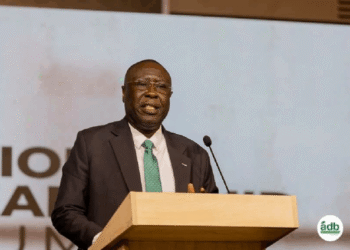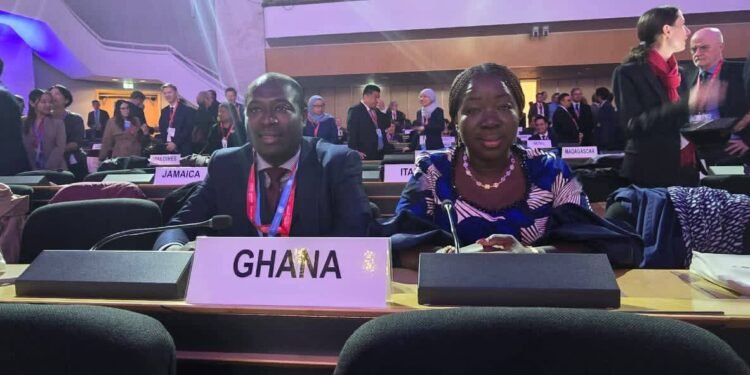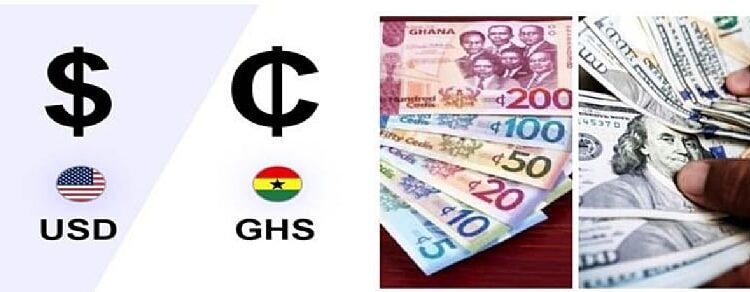GCB Bank Plc has taken a bold step into the future by unveiling a comprehensive sustainability programme designed to transform the way banking is done in Ghana.
The launch, which has been hailed as a milestone in the country’s financial services sector, positions GCB as a leader in aligning profitability with environmental stewardship, social responsibility, and ethical governance. With six flagship initiatives under its sustainability agenda, the bank is sending a clear signal: sustainable finance is no longer optional—it is the future.
At the heart of the blueprint are six innovative initiatives: Sheagles Soar, R³ (Reduce, Reuse & Recycle), i-360, Evolve, and EagleTouch. Each project is tailored to create long-term impact while addressing pressing global and national challenges. From empowering women and promoting gender-responsive financial products, to embracing recycling, climate-smart agriculture, and digital innovation, GCB’s initiatives cut across all sectors of sustainable development. Together, they embody the bank’s commitment to balancing profit with purpose.
Managing Director Farihan Alhassan explained that these initiatives are not side projects but the foundation of GCB’s new culture.
“Our strategy is anchored in a baseline assessment aligned with national and global commitments, including the Paris Agreement and the UN Sustainable Development Goals. Built on three pillars—Environmental Stewardship, Social Responsibility, and Ethical Governance—it reflects the triple bottom line of people, planet, and profit.”
Farihan Alhassan
Leading by Example
Board Chairman Professor Joshua Alabi emphasized that GCB’s role as Ghana’s premier bank comes with the responsibility to set the standard. He described the programme as a “blueprint for a sustainable future,” one that will ensure banking delivers not only financial returns but also social empowerment and environmental protection.
“By putting people and planet first in all our operations, we will secure profit in the truest sense: profit that is inclusive, resilient, and beneficial to all stakeholders.”
Professor Joshua Alabi
This vision underscores the bank’s belief that true profitability must go beyond financial gains. It must be inclusive, creating opportunities for the youth, women, farmers, and underserved communities while safeguarding natural resources for future generations.
The launch event featured a thought-provoking panel discussion titled “People, Planet, and Profit: Sustainable Operations for Impact and Opportunity.” Moderated by Cynthia Ofori-Dwumfuo, GCB’s Chief Marketing, Communications, and Customer Experience Officer, the panel brought together influential voices including Board Member Pamela Addo, SUCCA Africa’s Mark Ofori Kwafo, and GCB’s Head of Credit Risk Edward Sasu Adofo.
Panelists stressed that sustainability must be integrated into the very core of banking operations. They highlighted areas such as financial inclusion, gender-responsive products, youth-focused banking, and climate-smart agriculture as critical drivers of impact. They also warned that climate risks pose real threats to long-term stability but pointed out the vast opportunities in renewable energy, sustainable farming, and green jobs.
From Buzzword to Business Culture
For years, “sustainability” was treated as a buzzword in the corporate world, often relegated to corporate social responsibility programmes. But GCB’s Head of Special Projects and Investor Relations, George Fuachie, made it clear that the bank is adopting a new approach. “Sustainability is no longer a buzzword. It has become a way of doing business,” he affirmed.
This cultural shift means GCB will weave sustainability into every facet of its operations—from lending practices and investment portfolios to community engagement and internal operations. The goal is not only to mitigate risks but also to unlock new opportunities that benefit stakeholders and society at large.
GCB’s sustainability agenda aligns closely with Ghana’s national development goals and international frameworks such as the UN Sustainable Development Goals (SDGs) and the Paris Agreement on Climate Change. By adopting policies that reduce carbon emissions, promote renewable energy, and expand inclusive finance, GCB is positioning itself as a key partner in Ghana’s transition to a sustainable and resilient economy.
This move also aligns GCB with global best practices, ensuring that the bank remains competitive in a financial landscape where investors and regulators are increasingly demanding transparency and accountability on environmental, social, and governance (ESG) performance.
The unveiling of this sustainability programme is not just a symbolic gesture; it is a decisive step into the future of banking in Ghana. With its pledge to invest in innovative solutions, form transformative partnerships, and prioritize people and the planet alongside profit, GCB is charting a new path for responsible banking.
The bank’s blueprint serves as both an internal guide and an external call to action—inviting other financial institutions, policymakers, and businesses to embrace sustainability as a driver of growth and resilience.
As Professor Alabi noted, GCB’s leadership role comes with a responsibility to set the tone for the entire financial sector. By embedding sustainability at the heart of its operations, GCB Bank is not only redefining what it means to be profitable but also shaping a future where banking truly serves society and the environment.
READ ALSO: World Bank Predicts Ghana’s Per Capita Income Could Skyrocket Threefold by 2050























